|
Recap: Purpose and Context of the, Go and See, Series
Go and See, Part 8 Introduction
In Session 7 we took the time to consider and examine how taking inventory of our relationships, understanding the impact they have had on us, and then setting forth to invest our lives by investing in relationships with others is not optional--it is fundamental to living out the role we have been set in this time and place to fulfill. We also looked at the significance and impact that should come from believing that we are made in the image of a relationship-centered God. Then you walk through the steps of recalling key people in your life and creating a Faith Family Tree to reflect the ways God has used relationships to grow and guide you.
In the last session, most of your time was spent looking back to reflect on and record those people who have built your faith, passions, dreams our courage--honoring and summoning gratitude for those who have been instrumental in you becoming the you your are today. In this session, you are going to turn your reflective eyes forward and use them to create vision. In addition, we will take time to recognize the powerful role encouragement plays in investing in the lives of others. “May the God who gives endurance and encouragement give you the same attitude of mind toward each other that Christ Jesus had, so that with one mind and one voice you may glorify the God and Father of our Lord Jesus Christ” (Romans 15:5-6, NIV). If we believe there is a God who set us in our specific time and place, and divinely sets our paths to cross the paths of those around us, then we can believe that making a plan to invest in those relationships is honoring God and answering our calling. Yet, it is pretty easy to live more like we believe our interactions are accidental or random. Let’s choose to run from that lie by taking inventory of the relationships God has provided for us and then make a plan to intentionally invest in those relationships, even if it gets hard and complicated. Loving God is hard work. Sometimes loving people is even harder work. Sir Winston Churchill once said, “He who fails to plan, is planning to fail.” And this is just as true in relationships as it is in any other areas of our life. Thus, the objective of Session 8 is to help you make a plan for investing in the lives of others.
Reflection & Application
We need people. For real. This is a human and a spiritual need. As much as American culture tries to hold up the self-made man as the role model for success, I believe that deep in our souls we know that to be self-made and successful on our own, without the help of others, actually leaves us lonely, confused and quite frankly living a lie. Instead, the phrase, ‘no man is an island’ (from a John Donne sermon in the 17th century), is closer to the truth. Both the truth as we experience in reality, and also the truth we are called to biblically.
“No man is an island, entire of itself; every man is a piece of the continent, a part of the main; if a clod be washed away by the sea, Europe is the less, as well as if a promontory were, as well as if a manor of thy friend's or of thine own were; any man's death diminishes me, because I am involved in mankind, and therefore never send to know for whom the bell tolls; it tolls for thee” (John Donne, Devotions Upon Emergent Occasions).
As Christians, individual members that make up on body in Christ, our marching orders stand in contrast to many of the habits and patterns of thinking of culture. We are called to see that we need one another in order to live out the truths of our professed allegiance to Christ. We are called to spur one another on toward love and good deeds. We are called to live from a posture of humility so starkly different from the world’s point of view, that it stops people in their tracks and causes them to wonder what makes us different. We are called to relationships within the body that are so harmonious that the world will look at us and know love and see our identity as a follower of Christ impacts how we do relationships.
But how do we do this when it seems all hell is coming after relationships? How do we do this day in and day out when relationships can also be a source of pain, discouragement and brokenness? By determining to let our hearts, minds and souls be conformed to the mind of Christ. This is done through combing through God's truths, commands, and promises in the Bible on a regular and consistent basis--looking specifically for those passages that remind us, ‘no man is an island’ and that direct us on how to live like we believe what the Bible teaches. And by inviting the Holy Spirit in to provide the power to take every negative or unproductive thought captive in order to choose to believe the best of those around us. Lastly, it is done by recognizing that investing in relationships requires discipline and intentionality. None of which will likely come naturally or easily. We need all kinds of voices and people in our lives to help us run our race well: mentors, shepherds, friends, running-buddies, prayer warriors, and observers. Some of these people fall into the routine of our lives and we easily get time for them. Others cross our paths now and then, but not without effort and intentionality. Though we would all love to be the ones invited into intentional, deep relationships, it isn’t a practical way to think or live. If everyone is waiting around to do be the one invited, no one will be doing the inviting. In addition, just as you need others, others need you. Recognizing that others need you is paramount to taking hold of living this call to purposeful relationships commissioned to each of us by our creator. In a world full of messages that encourage selfishness, it is easy to dismiss the “other people need me” phrase as just that. However, in reality, when this concept is approached from humility and with a mind and heart that says, Others just might need my words of encouragement to keep persevering. If I hold back from believe others need me to serve and encourage them in their faith, I could be holding them back from using their gifts, then it becomes an act of selflessness. One’s physical body needs all the parts to be active and responding to each other in order to be whole and healthy. So too with the members of the body of Christ. You are one of those parts. And there is only one of you who can perform the unique function God designed you for. You are the only on who can meet the needs of the Church and the world in your specific places and relationships. I wonder if this is the harder belief to submit to believing and courageously living out. If you do not believe others need you in order to be encouraged, spurred on in their faith, or simply to feel as though they are not really an island, then you will not likely find the courage and strength to live this truth. Recognizing that who you, the words your speak, the model you set for others is needed for the health of the whole is a truth I think we too easily are tempted push under the rug out of insecurity and fear. And we need to stop doing so because people need us. They need us to actively live out the belief that in Christ, our words and actions have the power to set people free. We have been set free to set others free! The Word became flesh so that we could use our words and lives to stir one another up toward love and good deeds, encouraging one another as as the [last] Day draws near (Hebrews 10:24-25). Encouragement is a gift of strength we can give to all those around us. Let’s be people who recognize our need for others, their need for us, and the world’s need to see who our Father is through us. We have been designed and purposed to change the world. It starts by investing in one relationship at at time. Questions for Reflection:
Digging Deeper
Pinning our beliefs and actions to specific truths found in passages of the Bible is essential to remaining inline with the promises and character of God. Let’s go and see what the Bible says about our need for others, their need for us and the world’s need to for the all the members of the body Christ to be active in investing in relationships. Grab your Bible and read the following passages: Exodus 20:1-17, Mark 12:28-34, Colossians 3:12-15, and 1 Thessalonians 5:11. Highlight the verses or words that stick out to you.
If you grew up in church you likely had to memorize the 10 Commandments, found in Exodus 20:1-17. The commands given to Moses begins with those laws that relate to our relationship with God and end with those laws that relate to our relationship with others. Don't miss the significance of this. Healthy relationship with others begins with a healthy relationship with God. And building healthy relationships with others is paramount to obeying God and living into His promises. When was the last time you went back and looked at these ten commands, reflected on them or asked yourself if your actions and words most often demonstrate obedience to God in these areas? Grace certainly covers for our shortcomings and Christ death on the cross means salvation comes through belief in him, not living a perfect life. Yet, obedience to these commands hasn’t been dismissed. This is hard work. We won’t nail it every day. But our goal is to always keep working in the direction of holiness and obedience. It is important to notice that a majority of the commandments relate to relationships with others (all the other commands concern our relationship with God). In short, we cannot obey God without choosing to build relationships that show honor and respect to these commands. This obedience in relationships to others as a pathway to obedience to God is also found in Mark 12:26-34 & Colossians 3:12-15. In both of these passage we see that we cannot follow the “greatest” commandments if we are not living in relationship with others. Again we see the message, we need people in order to obey God. In even better news, we are not ill-equipped to do so. Love, through Christ and the power of the Holy Spirit, is continually being poured into us in order that we are able to fulfill these commands in all of our relationships. Not only that, but this Christ-powered love is our source of strength in persevering and in choosing to invest in relationships. We exist for God and for those who need God. Both the Old and the New Testament show us this. Furthermore, Christ came to give us the grace, power and tools to live out this divine purpose set in us for this side of heaven. The most practical place to start with living a life focussed on investing in relationships that meet needs and spur others toward love and good deeds is to our words. 1 Thessalonians 5:11 helps us to see that encouragement is how we build one another up because it brings out strength in people. Encouragement, though often done with words, can come in many forms: What you give (Mark 12:41-44). What you say (Proverbs 16:24). What you do (Mathew 25). How you choose to live (Ephesians 5:1-2).
Tool 8: Relationship Investment Plan
Tool Defined : Our lives are meant to spur others on toward love and good deeds. Not as an option. But as a need. This doesn’t often happen naturally. Yes, we may find ourselves in relationships no matter what, but it takes the Holy Spirit, discipline and intentionality in order to foster relationships that spur others on. Likewise, it takes perseverance and humility to invite others into our life with the specific intention of asking them to spur us on. Yet, finding just one person to be the sole source of your spurring isn’t the goal. This is for many reasons but on of them is because God has given us an entire body of voices to help guide us. Conversely, we shouldn’t be another person’s sole source of spurring. For all the same reasons.
We need to have relationships with those who can easily relate to our season of life, but we also need people who have gone before us. And some who are a season or two behind. We need people who are full or affirmation for what they see in us. Additionally, these affirming voices should be balanced with people who are courageous enough to help us see gaps or nearsightedness in our thinking or behaviors. As noted earlier, it is important to remember there is a danger in believing the lie that no one needs you or that your life is not impacting others. Seeing the truth of your life's impact and committing to growing more consistent in your intentionality toward investing in others who need your encouraging words and or who need to see the example of life that you live, will likely grow you in ways you can’t even envision completely right now. This tool is designed to allow you to take inventory of the people in your life right now, and examine if there are some types of voices missing in your time. It then instructs you to make a plan of how to intentionally create time and space to invest in a relationship(s) that you are in need of. Lastly, you will use this tool to outline the ways you can begin to intentionally invest in relationships that build others up because of you being a part of what they need to be spurred on.
Instructions:
1. Take 10-15 minutes to answer each of the following questions with names and reasons each name fits the answer. Then write an estimated amount of time you spend investing in these relationships. (Link to .pdf version below.)
2. As you examine the names and the amount of time you spend investing in these relationships, are there any that are needing more time and investing in? If so, create a plan for what that will look like in the coming weeks, months or year. Write it in the handout attached below or in your journal:
3. Take 10-15 minutes to answer each of the following questions with names and reasons each name fits the answer. Then write an estimated amount of time you spend investing in these relationships.
4. As you examine the names and the amount of time you spend investing in these relationships, are there any that are needing more time and investing in? If so, create a plan for what that will look like in the coming weeks, months or year. Write it in the handout attached below or in your journal:
*chart information adapted from,Restless, by Jennie Allen
Closing
Do you remember that little song you likely learned as a preschooler, This Little Light of Mine? One lyric says, “Hide it under a bush? Oh, no! I am going to let it shine.” How many of us are hiding our lights (gifts, purposes, visions) behind bushes because we are unsure as to whether our light really matters in the world? When we think of one little light under a bush (Which by the way would start a fire but, I digress.) it can seem insignificant. However, when all those lights that are sitting under bushes, (starting forest fires) instead, come out and join together to be one big light for the world to see, I guarantee our Abba in heaven looks down with pleasure and delight. Correspondingly, those around us will look toward the light and start asking questions about how they can have some of that life-changing light too.
When we breakdown the metaphor of the little light, we find that the song is really saying, This little life of mine, I am going to let it build up and encourage the people around me. In other words, I am going to believe and live out with words and actions the truth that my life is designed for impact. This impact begins with relationships--one relationship (one little candle being lit our brought out out from under a bush) at a time. Living this way will not be as easy as singing a song or learning what to do to have relationships, but will be birthed out of words and actions driven by intentionality, perseverance and an understanding that without relationships we can not obey all that God has asked of us. We love God well, by loving others extraordinarily.
1 Comment
Recap: Purpose and Context of the, Go and See, Series
Go and See, Part 7 Introduction Throughout the last six sessions of this study you have taken time to consider how the following guide you toward understanding and living out your purpose: God’s word and commands in the Bible, your life’s story (both the times of celebration and of trial), and your unique design (natural talents, personality traits, and spiritual gifts). Yet, there is one more aspect of our lives that needs examining and diagramming in order for us to fully comprehend one of the most essential elements of our purpose--relationships. From the beginning it is this relational component of our being that sets us apart from all other created things. Our internal desire and need for relationships was set into us by a God who “made us in His image” by breathing His spirit into Adam and then into Eve. In the beginning human and God walked together in the Garden and lived in relationship with one another. Our design from the start was intended to be a “helpmate” type of relationship with others and a “walking day-to-day” relationship with God. Even though the Fall wrecked the natural ability for these relationships to flourish, the root of our design is unchanged. We were made for one another. We were made in the image of a relationship-focussed God who operates out of an everlasting, triune relationship--Father, Son and Holy Spirit. Thus, taking inventory of our relationships, understanding the impact they have had on us, and then setting forth to invest our lives by investing in relationships with others is not optional--it is fundamental to living out the role we have been set in this time and place to fulfill. Everything in our being is oriented toward relationship--with God and others. Yet, for most of us, relationships can be one of the greatest sources of challenge, frustration and disappointment. However, the level of challenge found in growing and maintaining healthy relationships does not give us permission to dismiss the importance, necessity and significance of God’s design for us to live in relationship with one another. In fact, the challenges should signal to us the need to pull on the armor of God and fight for the relationships given to us by the God who sets each of us in our time and places for a divine and holy purpose. All the people in your life are known to God. All the relationships in your life are known to God. Believe that. Let it propel you toward choosing to go and see how each relationship in your past and present is guiding you toward knowing and living out your purpose. Each relationship is a endowment you have been given to invest in while the master is away. Each relationship is abounding with opportunities to invite Jesus into multiply your “loaves and fishes” to meet needs. Each relationship is a precious gift. Let that lens guide your reflections and prayers as you walk through this session. Reflection & Application Throughout my life I have been overwhelmingly blessed with teachers, coaches and colleagues who inspire me and push me toward goals I wouldn’t likely have worked toward had I not known them. Several months ago I ran into my high school track coach. We have kept up some over the years, but my visits to my hometown are infrequent to say the least. Thus, interaction with people from my upbringing are sparse. Yet, there is a deep well of gratitude and appreciation in my heart and soul for the ways the adults from that time in my life helped me become who I am today. As a result, I have determined that whenever I have opportunity to honor these people and thank them for how they shaped me, I will seize it. As our conversation unfolded that day, I knew this was an opportunity to be seized. So, as awkward as it felt, I let the words of gratitude and appreciation leave my heart and mouth. His response caught me off-guard. He looked me straight in the eyes and said, “You need to always remember that impact goes both ways. Your life has impacted mine more than you will ever know.” I was at a literal loss for words and small pools of water set themselves in the corner of my eyes. This was something I had never in my 36 years of life considered: The way I was living was impacting people older than me. The testimony of what I did as an adult was bringing courage and change to the people who had raised me. How could this be? Yet, this is the truth. Impact works both ways. Even though my motivation in the above conversation was to express my gratitude, I was gifted with a word of encouragement and a reminder that all the relationships in our lives are designed to provide strength one to another. And isn’t this what the second greatest commandment is all about? Teacher, which is the greatest commandment in the Law?” We absolutely cannot live out the second greatest commandment if we are not in relationship with others. One of the ways I feel most loved is when I am affirmed and encouraged by the sincere words of another. Words not about a specific accomplishments but ones that affirm that my unique design is recognized. Ones that reveal my life isn’t invisible. Those words that confirm that how I am living is pointing others to love, grace, and freedom. These are the words that I want to encourage others with as well. But I can’t get there unless I am living in a close enough relationship to others in order to be sincere, honest and truthful. In addition, I can’t see how others are building me up and fanning my flame if I don’t stop and reflect on who God has set in my path to guide me, build me up, and provide opportunities to live out my purpose. They say the first step in overcoming a bad habit is admitting you have one. I believe that can be turned around a bit and applied here: The first step to seeing the role relationships have played in molding and guiding you toward your purpose and giftings is admitting those relationships exist. The next step is listing each and defining the impact. And then seizing every opportunity to express gratitude and affirmation for the gifts these relationships have provided. Reflect on and answer these questions:
Digging Deeper To get started on this journey of placing relationships in our minds as gifts and guides toward understanding our purpose and vision, let’s go and see what the Bible reveals. Go grab your Bible (or click on the links here) and read 2 Timothy 1 and Psalm 78:6-8. Highlight the verses that stick out to you. A bit of context to get us started: The Apostle Paul is writing from prison, to his disciple, Timothy. It is important to note that Paul opens with words of encouragement and affirmation to his “son” in the faith, Timothy. In addition, Paul calls into recognition Timothy’s heritage and the role it plays in his calling (future assignments). Paul is building Timothy up through a very sincere recognition of the impact Timothy’s faith and perseverance has had on Paul’s faith. Secondly, Paul points Timothy back to the faith-heritage from which he has come. Both of these forms of affirmation stem from the relationships that Timothy can look to when he needs evidence of the Spirit living in him. One is biological, the other is not. Yet both are the reasons Timothy can confidently keep spreading the flame to others. In other words, our spiritual heritage and relationships are to light our way, give us courage and hope to persevere in our purpose and vision. “For this reason I remind you to fan into flame the gift of God, which is in you through the laying on of my hands” (2 Timothy 1:6, NIV). This session asks you to consider your heritage and its impact on your present and future. In addition, you will be asked to recognize and begin to plan for the legacy (impact) of your life. The relationship between Paul and Timothy reveals that one’s spiritual heritage may not be built from those who are genetically members of his or her family tree. Likewise, one’s legacy may extend beyond biological or familial relationships. Because in Christ, we are all one family--all adopted sons and daughters and heirs to the Kingdom. Our mission here is to help one another get there. We can take nothing with us from this world, except relationships. Hence the need to truly know how invest in relationships. In the passage from the book of Psalms, we see yet another reason to recognize, record and share the relationships that have built our faith, purpose, and gifts--that the next generation will know. Taking the time to record our faith story and the lineage of our faith may be instrumental in leading our children (biological or spiritual) to steady faith. We want to give your children their own faith and relationship with God, but we need to recognize that the roots of their growth begin with the relationship we have with them. So to for us. Our faith might be our own, but we were molded, equipped and guided by those who have gone before us. As we start leading others it can be easy to forget the relationships that lead us to where we are. Fighting to remember how the flames got started in our faith and sharing those stories with others is important and impactful because it fans the flame in our souls and the souls of those who hear it. Tool 7: Recalling Key People - Family Tree of Faith Tool Defined: Recording your lineage of faith. The aim of this activity is for you to create an image or timeline that reflects the ways God has used relationships to grow and guide you. In addition, taking ownership of your spiritual lineage--both what you receive and what you pass down--is incredibly beneficial to your Faith journey. Thirdly, this tool can illuminate for your soul God’s sovereignty over the relationships in your life, producing joy, thanks and praise for your creator. Also, recording your lineage of faith with an image or timeline is another way to set up stones of remembrance so that the generations to come can know and see the work and blessings of God in your life. Instructions:
Closing It is a battle to pursue understanding our gifts. It is a battle to intentionally pursue depth in relationships. It is a battle to believe that the effectiveness of the parts of the body of Christ hinges on the connectedness of each of those parts to Christ and to another. But we have all the tools we need for battle: Christ’s atoning blood that washes our conscience clear, the Holy Spirit who illuminates our calling and gifts, and relationships around us that tangibly tether us to our united mission: to display God’s glory, love and works to the little corner of the Earth we find our two feet planted for now. Ask the Holy Spirit to reveal to you more clearly all the ways he has entrusted gifts to you to love him more completely and love his people more intentionally. Pray for discernment to know in what area(s) of your life you need to intentionally pursue deeper relationships with others. For example, friends, neighbors, co-workers, mentors, parents, children, those who don’t know God yet, widows, orphans, or the elderly. Pray that you will know what obedience looks like for you and that you would know how to access the power and creativity to obey.
This is part 6 of the series, Go and See. These posts are designed to give you tools to "go and see" the ways God has designed you for impact right where you are, right now. If you are new here, head back to part 1, Stones of Remembrance, for the purpose and context of the series, along with the steps for creating a timeline. Then move to part 2, Thematic Labeling of Experience. Next, jump into part 3, A Clear-Conscience. And don't skip, part 4, Writing A Personal Essay. or part 5, Understanding Your Unique Design. Recap: Purpose & Context of Go and See
Go and See, Part 6 Introduction This week you are going to take all your learning from the last five weeks and synthesize it into three different categories that you can use to define your purpose, mission, and values. You will reflect on the experiences of your life, the people who have influenced you, your natural talents, spiritual gifts, personality traits, the ways God has worked in your life and the Holy Spirit’s power to provide understanding and clarity, to look for write out very specific and unique answers to the following questions:
The goal in this process is for you interpret of how your unique design determines your purpose, your dreams and goals (vision), and the values you must hold to in order to keep living out all three. We established in previous sessions that God designed every part of who you are, where you have been, where you are and where you are going. In addition, he uses all things to bring us to the goodness of redemption and grace of changed perspective (Romans 8:28). This is so that we can live according to the purposes he destined us to, even before we were born (Psalm 139). Because when we live out of a true understanding of who we are, we find an eternal assurance that propels us to look toward heaven, rather than to our circumstances, to discern our calling for such a time as this. Yet, it is necessary to remember that the path to living out your God-given dreams may sometimes seem to be inhibited by your circumstances. There will likely be periods of time when it looks like your gifts or purpose don’t fit the setting. Yet, no matter what, we can endure and persist even when circumstances seem to oppose your vision and dreams. In fact, it is very likely that in these most trying times that our values will be tested, refined, and become the roots on which are grown the behaviors we will adhere to when living out our purpose and vision in the present and future. I pray that this session will help you articulate your purpose, vision and values in writing. So that you can return again and again to an artifact that reminds you of who you were created to be and the specific assignments that you are gifted to complete by remaining steady in living a values-driven life. I pray that you will come to a new or greater picture of how to live in step with your God-given design, not matter what. Most of all I pray that you would see yourself as God sees you, and that from that point of view, you would operate with power, delight and wholeness. You were made to run your race right now. In Christ, you have everything you need to live on purpose, for His purposes, to fulfill your heart’s desires, for the Glory of God and the love of the people he has placed in your spaces. Reflection & Application Before we dig in, it is important that we define the terms: purpose, vision, and values. (The definitions provided below have been adapted from the training I received through the course, Servant Leadership RoundTable, from Triune Leadership.) The definitions of these words will be what you use to create statements that both reflect who you were designed to be, as well as provide a guidepost for you to return to again and again--especially when it comes time to say “yes” to this or “no” to that. In addition, during seasons when it is hard to see what God is doing in your life, these statements can help you look for how you can remain faithful (living out your values) and keep living out your purpose even when you can’t quite grasp the vision coming to fruition. A Purpose Statement: This statement answer the question, Why do I exist? (What do I do? For whom do I do it? What is the intended outcome or value? Why?) John 6:38 says, “For I have come down to heaven not to do my will but to do the will of he who sent me.” We are to look upward to grasp our purpose for our days here on this earth. It is written out in heaven, our job is to unpack it to live it out well right where we are now. A Vision Statement: This statement answers the question, What do I need to create? (What can I give to those around me for such a time as this? What pressing desire has God set on my heart?) A vision is a picture of a future you intend to create by using the gifts and unique design you’ve be given. It is a dream with a direction. It requires you to create an image or picture of your preferred future. You can determine how far away that future is: 5 years...15 years… 35 years… the end of your life. Values Statement: This statement answers the question, How am I going to behave? (What kind of character-traits do I want to grow?) Values are behaviors you will choose to live out no matter what because you believe they are in line with the purpose and vision given to you by your creator. These need defining and describing in order to be effective. Rooting each in Scripture breathes life into them and tethers them to truth. In this session, the book of Hebrews and the story of Joseph's’ life are going to help us go and see: Staying steady in purpose and committed to goals and vision requires living by values and the Holy Spirit, remaining faithful to using the gifts and vision entrusted to you right where you are. Steadiness is built on faith, truth and trust. Faith in a God that we cannot see, but who we can know. Truth that comes from God’s word and the Spirit, and revelation. Trust that our God has a good plan for each of us, even when our location or vocation don’t quite match what we imagine it should be. Let’s get started: Read through Hebrews 11-13 and highlight the verses that stick out to you. The goal is to go and see how Hebrews helps us to better understand purpose, vision and values. So, what instructions do you find in these chapters on knowing and living out your purpose, vision and values? Reflect on and answer the following questions.
Digging Deeper Hebrews has helped us to see that faith is the first step toward living out the purposes God has for us. By faith we move in the direction of his callings. By faith we step into the plans he has for us. Hebrews 12 reveals that fixing our eyes on Jesus is how we run our race. Jesus fixed his eyes on the joy of saving us from our sins at the cross. The vision of the outcome helped him to endure the cross. Lastly, Hebrews 13 defines for us the values (behaviors) that will help us to move steadily forward in our purposes. But let’s dig even deeper in to the story of a man who shows us what it looks like to remain steady in purpose, vision, and values, even when in unexpected and undesirable circumstances. Take few minutes to read Genesis 37:1-11. Highlight the verses that stick out to you. Then note the following:
Joseph’s Story Reveals Purpose, Vision & Values: Joseph, who is considered a prototype or prefigure of Christ, says in looking back on his 30 years of persisting in his calling while being a slave, says this: “God intended it all for good to accomplish what is now being done, the saving of many lives” (Genesis 50:20). We see in Joseph persistence, consistency and discipline in operating out of his giftings in all his circumstances. It is plausible to conclude: Joseph was persistent in honoring God with his life because he knew this was his purpose. He was consistent in devoting all that he did to God because he believed in the dreams and visions that were given to him. And he was disciplined in making decisions based on his values (not his circumstances or emotions or to please others), which likely altered his attitude and perspective on his circumstances. How was he able to stay so true to who God had made him to be despite the fact that he was in horrible circumstances due to jealousy and false accusations (and maybe a little bit because of his own haughtiness)? He had a vision (dream), given to him from God and he chose to live toward it even when it looked like the dream had died with the animal’s blood that was shed and drenched on his coat of many colors. And he was sold into slavery. We too can ask God to give us a picture, vision, or dream of what he has planned for us. We too should maybe plan on it taking a few years or decades for it to come to fruition. And to persist even when it seems maybe we aren’t where we planned to be. We can use all the tools from this study, along with asking for revelation and discernment from the Holy Spirit, to write out a purpose statement, a mission statement and a set of values that can guide us no matter the circumstances we find ourselves in. Tool 6: Purpose, Vision & Values Statements Tool Defined: Creating and documenting a purpose, vision and values statement for yourself or your family can be powerful in claiming persistence, consistency and discipline over the calling and giftings God has given you. It isn’t the tool that makes you able and powerful, but the Holy Spirit’s presence. However, these tools can help tether you to remembrance and guide you in decision making in times of high emotions, confusion or transition. Also, these tools can be like a mirror you can return to in order to rightly see who God has made you to be when you get a little bit lost. A reminder of the definitions of each:
Instructions for Writing Purpose, Visions & Values Statements: Take time to ask the Holy Spirit to be present with you as you reflect on the gifts (and calling) you took inventory of in part 5. Then use those to generate answers to the following questions.This process is meant to guide you in creating a purpose statement, a vision statement and a set of defined values that reflect who God has made you to be, what he has gifted you with and how both are going to be used to impact the people of this place and in this generation. Purpose Statement: This states the reason for your (or your family unit) existence and provides a guide for goal-setting. After examining the result of the tools you used to take inventory of your giftings and calling, answer the following questions incorporating the words, phrases and ideas from your inventory reflections.
To or for ____________________________________________________. So they can __________________________________________________.
Vision Statement: Based the result of the tools you used to take inventory of your giftings and calling, answer the following questions incorporating the words, phrases and ideas from your inventory reflections. The goal is to describe a vision of your preferred future. (You can determine how far away that future is).
Values: Definitions & Behaviors: These form the beginning of living a life of purpose on purpose. To be useful values need to be identified with a definition and in terms of specific behaviors. Based on the results of the tools you used to take inventory of your giftings and calling, consider what values will be necessary in order for you to live toward your purpose and vision, and to grow in your areas of giftings.
Closing Your gifts point you toward your purpose, vision and values. Have you discovered and unwrapped your gifts yet? It not, what is holding you back. Stop and pray for strength to fight the good fight of faith to uncover all the ways you have been designed to live out your purposes. Let the fact that God delights in you discovering all the ways he made you to meet the needs around, loving Him deeply and finding joy in his destiny for you propel you forward in your journey. Throughout the process of articulating in writing your purpose, vision and values, remember that you are on a journey to discover what was established before the beginning of time, your work is to excavate them, understand them, increase them and enjoy them. As you use words to hone in on clarity, also keep in mind that your circumstances don’t determine your giftings, purpose, vision or the ability to live out your values. Proximity to God does. Who you are, where you are is more significant than where you are and the circumstances around you. To circle back to Part 1, your purpose statement, vision statement, and list of values can be like stones of remembrance (Joshua 4), allowing you to remain steadily pointed in the direction God has your heart pointed toward. It is worth your time and energy to keep a record of these things. In the end, the ultimate purpose in walking through this session is for you to grasp the ways that Mark 6:30-44 is to be applied to your life: What do you have? How will you use it to “feed” the multitude in front of you? This is part 5 of the series, Go and See. These posts are designed to give you tools to "go and see" the ways God has designed you for impact right where you are, right now. If you are new here, head back to part 1, Stones of Remembrance, for the purpose and context of the series, along with the steps for creating a timeline. Then move to part 2, Thematic Labeling of Experience. Next, jump into part 3, A Clear-Conscience. And don't skip, part 4, Writing A Personal Essay. Recap: Purpose & Context of the, Go and See, Series
Go and See, Part 5 Introduction We all have been given gifts (skills, talents, experiences, heritage, etc.) to be used to do the work of heaven on earth. God has talents for each of us, and we are commanded to multiply them until his return. This is easier said than done, for sure. Yet, knowing your unique design, is paramount to running the race marked out for you. You have been given an exclusive combination of natural talents, spiritual gifts, and personality traits that are assigned only to you. This session is designed to help you see more clearly how who you are is the greatest gift of all because the way you are designed is specific to how you will be used for the glory of God and to impact earth and heaven. Understanding your unique design can be challenging and time consuming. It may require some endurance and awkward moments of seeking the point of view of others. Still, it is worth it because your creator-Father desires for you to take joy in being the rare gem that you are. He desires for you to experience the fullness of peace and freedom that comes through the confidence gained in living out of who you were designed to be from the start. When you live from this place of understanding and wholeness, you will discover that like the loaves of bread and fish multiplying to feed the 5,000, God will start multiplying what you have to meet the needs of the “multitudes” you are asked to feed. I pray that this session will help you to see that working at excavating and understanding your natural talents, spiritual gifts, personality traits and the ways God has worked in your life (your life’s timeline and story) can aid in propelling you forward from where you are right now. We are called to a dynamic, not a stagnant life. But sometimes fear, doubt or simply a lack of understanding of your unique design's purpose, can hold you back from moving forward. So, before start this session, pray and ask the Holy Spirit to come and remove any burdens are barriers that could hold you back from excavating the beautiful talents, gifts, and traits that God asks you to go and see as the "bread and fish" he wants to multiply through you to impact those around you. Reflection & Application If you need to refresh your memory on the scriptural rooting for this study, take a couple minutes to go and read Mark 6:30-44 and Matthew 25:14-30. Keep these in mind as you navigate this lesson because the metaphors, contexts and characters in the stories help us to see the necessity of taking seriously the act of going and seeing what we have, as little as it may seem. In addition, investing what we have been given for such a time as this is our end goal. Let’s start with looking at what the Bible instructs us to as it pertains to spiritual gifts. Take a few minutes and go and see what is written 1 Corinthians 12:1-31. Highlight anything that sticks out to you. Reflect on the following applications found in this chapter:
Digging Deeper We are all called. We all have gifts. Let’s look at the journey of discovering our calling as if it is a Christmas morning. We run down the stairs, dig under the tree. Find all the gifts with our name on them. And then we start unwrapping them to see what we have been given. There are many ways to unwrap a gift. And depending on the size or shape of the gift, we may use a different strategy to reveal it. So, we are going to use a variety of tools to go and see what the giver of the gifts has given to each of us. There are a couple of differences between the typical gift we are given under the Christmas tree and the gifts we are given to fulfill our calling. First is that the gifts we are given to fulfill our calling are not intended just for personal use. They are given to us for the “common good” and in order that we may reveal God to those in our portion of the world. Second, the typical gift we receive on our birthday or Christmas morning does not multiply itself. Unless of course you are the type of person who receives seeds or trees as gifts. Unlike material or man-made gifts, the gifts given to us from God are multiplied and increased by the work of the Holy Spirit living in us who gives us grace, strength and power to use all that we are and have to honor and glorify all that God is. It is important with each gift that is unwrapped to pause and go and see in the deepest parts of our hearts the reasons we have been are given the gifts that are displayed before us. By this I mean, asking for revelation to gain understanding of how your natural talents, spiritual gifts, and personality traits point you to your gifts, purpose and vision. And when you go hunting down and find those reasons, you can know you are on the right track if those reasons you find are rooted in and supported by the words of Scripture. “...our God will count you worthy of this calling, and fulfill every desire for goodness and the work of faith with power, so that the name of our Lord Jesus will be glorified in you, and you in Him, according to the grace of our God and the Lord Jesus Christ" (2 Thessalonians 1:11-12 NKJV) . This above verse points very clearly to the main reason we are charge to go and see what we have been given and then use those things in our lives to live out our purpose and vision. That is: so that the name of our Lord Jesus will be glorified in you, and you in Him. This call to lift the name of Jesus high in our lives, so that the world can see his light through us--that our lives can be illuminated by His glory--is a corporate calling with individual assignments. All our resources, natural talents, spiritual gifts, and personality traits are to build up, support and advance the assignments of the corporate body of believers. But the ways in which the gifts work within the lives of each believer should be as unique as the snowflakes that fall from the sky: no two alike in shape and size, yet alike in color, texture and beauty. And it takes thousands of them to cover a landscape to make it glimmer and shine in the Son. Rebekah Lyons, in her, Be Still and Know Study, puts it this way, Within this corporate calling, we all have unique expressions. Throughout history-- and still today--God places specific assignments in our lives. He created each of us with talents and burdens to advance His kingdom work on earth. Corporate and individual callings are part of our destiny. Each generation, people group and person have been uniquely created and strategically located to fulfill a calling in the time and the place they were set in. Christine Cain, at IF:Gathering 2018, put it this way, “If you are breathing on this earth. You are called to something right now because He put you here now.” Consider these “heroes” of the Bible and how they were used by God in their time and place to accomplish deliverance and freedom for others: Moses, Joseph, David, Daniel, Esther, Deborah, Rehab, Mary, and Jesus. (Who else can you think of?) All of these people show us what it looks like to be set into time and a place to lead a people, save lives, advance the Kingdom, and storm the gates of hell. And so it is for you and for me. We are given the stories of these men and women so that we can have courage and strength to follow their lead. There is no time like the present to start living like Esthers in our generation! "Not according to our works, but according to His own purpose and grace which was given to us in Christ Jesus before time began.” 2 Timothy 1:9 (ESV). Before time began, God had you designed to be who you are, set in your places and realm of influence, and doing what you are do. All these details of our life are gifts. Theses giftings come from a good and amazing Giver. They don’t stand alone under a tree. They are not mysterious packages from an unknown sender. But. . . they do need to be found, unwrapped, examined, and turned over to the power of the Spirit in order to be used. So before you begin navigating the gifts and examining the ways in which they can be used (or if you are struggling to see the gifts given to you). Stop and seek the Giver. Believe and state as truth that you are gifted for a purpose and their is a vision written on your soul. Deliberately, stop and remind your soul that your life was set into motion before time and nothing can separate you from the design imprinted on you. Ask Him to be present as you go and see what He has already given you as presents. Knowing this, seek to see the unwrapping of your gifts as an act of love toward the Giver of the gifts. Look at these as gifts to be valued, enjoyed and used as described in 1 Thessalonians 5:16-24, Rejoice always and delight in your faith; be unceasing and persistent in prayer; in every situation [no matter what the circumstances] be thankful and continually give thanks to God; for this is the will of God for you in Christ Jesus. Do not quench [subdue, or be unresponsive to the working and guidance of] the [Holy] Spirit. Do not scorn or reject gifts of prophecy or prophecies [spoken revelations—words of instruction or exhortation or warning]. But test all things carefully [so you can recognize what is good]. Hold firmly to that which is good (AMP). 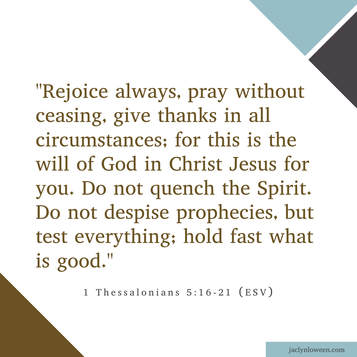 Persist in unwrapping these gifts. Yes, persistence and perseverance will likely be required. Not because God is a tricky jokester who wraps a gift 17 times just to make it hard to find the gem inside. But because we are in a fallen world and the Devil would love nothing more than anything stress you out or confuse you as you seek to know who you are, whose you are and how you are designed beautifully and uniquely to bring Jesus to people. Yet, it is worth your time to enter this journey of seeking and understanding with caution and in relationship with others who know you well. Why? Because discernment is required. Discernment is the ability to see and decide between truth and error, right and wrong. It is also the process of checking our thinking and ideas against what is biblically true. In order to know what is biblically true, we need to be reading the Bible and bringing our questions about purpose and giftings to God, asking him to reveal and encourage. We also need to have candid conversations with others who know the Bible and can help us to “. . . examine everything carefully; hold fast to that which is good. . .” (2 Thessalonians 5:21-22).  Discernment is found in close proximity of God, studying His words, and by inviting in the revealing power of the Holy Spirit. Only in close relationship with Christ do we see the truest versions of ourselves. He delights in revealing to us our unique talents and assignments to go into all the World sharing the good news of a Christ who saves, restores, redeems, and brings hope and peace. Sometimes he uses the Bible, other times he may use prayer, in other seasons he may used circumstances and most often he uses other believers to help us see who we are and what we are uniquely gifted to do during our one life here on this earth. So, as you go and see what gifts he is asking you to unwrap, trust that even if you can’t see them right away, they are there. Seek Him. Ask Him to reveal His gifts and purposes for you to you. He already knows them and has a plans for ways for you to use them. There is freedom in being in His holy presence and trusting that He reveals. Rest there, knowing that you have a tailor-made set of gifts set aside just for you to be able to put love into action--to bring glory to the King of heaven and earth. Claim, believe and make your mantra: “Every good and perfect gift is from above, coming down from the Father of the heavenly lights” (James 1:17). He is talking about you. He is speaking of your design. Tool 5: Excavating the Gems that are Your Gifts Tool Defined: As you step into this process of excavating and taking inventory of your gifts via the tools listed below, approach each as you would a beautifully wrapped gift handed to you to be opened. Let His joy be your strength as you pursue understanding who you are, whose you are and how your uniquely designed for fulfilling your rare and needed purpose for this time and place. Which just might be the saving of many lives. Instructions for Excavating & Taking Inventory of Your Gifts: Invite the Holy Spirit into the following reflection and analysis activities. Work through as many as you have time for over the coming week. (There is one activity for each day of the week.) Try super, duper hard to carve out time daily for these activities because they will help you greatly in understanding your unique design and affirm you in who you are in Christ.
Closing There are a variety of ways God chooses to reveal himself to us. There are a variety of ways for us to go and see what gifts he has given to us to increase our joy, strength, and effectiveness in meeting the needs of those around us. But most essential to our ability to use our gifts to live lives of purpose rooted in who he has made us to be, is first to believe, really believe, that a good, good Father made me and made you in unique and beautiful ways for this time and in this place to increase His glory on the earth and to demonstrate His great love and delight in us for us. And then do the work of going and seeing all that he has given you and asked you to invest until His return. This is part 5 of the series, Go and See. These posts are designed to give you tools to "go and see" the ways God has designed you for impact right where you are, right now. If you are new here, head back to part 1, Stones of Remembrance, for the purpose and context of the series, along with the steps for creating a timeline. Then move to part 2, Thematic Labeling of Experience. Next, jump into part 3, A Clear-Conscience. And don't skip, part 4, Writing A Personal Essay. Subscribe to updates to your inbox, below.
This is part 4 of the series, Go and See. These posts are designed to give you tools to "go and see" the ways God has designed you for impact right where you are, right now. If you are new here, head back to part 1, Stones of Remembrance, for the purpose and context of the series, along with the steps for creating a timeline. Then move to part 2, Thematic Labeling of Experience. Next, jump into part 3, A Clear-Conscience. Recap: Purpose & Context of Go and See series
Go and See, Part 4: Introduction Part 3: A Clear-Conscience was a heavy undertaking, wasn’t it? If you took the time to work through all components, or even some of the components of part 3, I hope you are able to see how brave, strong and courageous you are. In this session, you are going to go one step further in unpacking and understanding how, even out of painful experiences, we can be led to our greatest visions and purposes. The aim of the following is to give you tools to go and see how a single life experience can show the redemptive power of Christ and give testimony to the work of God. This will be done by examining the instructions for writing a Personal Essay and then recording an experience from your timeline in personal essay format. This may seem more academic than spiritual, but I have found that separating the secular and the sacred is a man-made way of categorizing and that God never intended us to live believing that some activities are spiritual and others are not. When we choose a life lived in Christ, all that we put our hands and minds to is encompassed by the hands and presence of our Creator. That said, as you step into the reading and activities for part 4, don’t let the academic nature of them limit your motivation to complete them, nor allow yourself to believe that they are not spiritual enough to produce a communing and powerful experience between your soul and our God. Many of the prompts and examples in this session relate to how reflecting on times of suffering, hardship or trials hold immense power to lead us to understanding our purpose and gifts. This is because it is these times in our lives that we often fail to reflect on how good these experiences were for our faith, growth and redemption. However, that doesn’t mean God doesn’t use experiences of success, triumph, or joy to also reveal our purpose and gifts. So, as you determine what to focus on in your Personal Essay, feel free to pull any life experience into the light and use it to share God’s hands in helping you understand yourself, Him or the world he created for you to be at such a time as this. Parts 3 & 4: Overarching Themes
Digging Deeper Understanding often doesn’t come in the midst of a trial or hardship. Even science reveals that the brain has a hard time learning when under stress, so it makes sense that it isn’t until later that we are able to cognitively and emotionally revisit challenging experiences of our lives and mine out the diamonds in the rough. What scientists have discovered about the brain and learning in recent years are also truths that we see in the stories of the men and women of the Bible. In addition, current-day Bible teachers like Beth Moore and Jennie Allen point out the following in regards to the relationship between suffering and understanding purpose and calling: Many of us have walked onto the path of our divine calling with a wounding. Perhaps it’s time we quit thinking that it’s an accident. ~Beth Moore, Entrusted Out of our pain we could heal the world. ~Jennie Allen, Restless 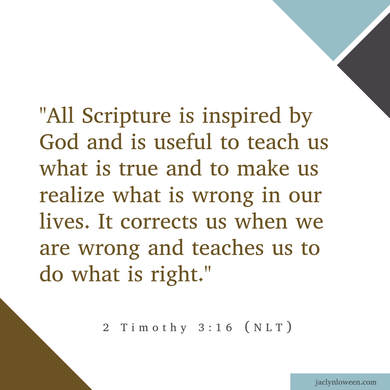 Yet, most important to our journey is to go to the the source of all truth, the Bible, where the words are sharper than a two-edged sword and are designed to instruct us on how to navigate life in this fallen world in a way that is in line with our divine calling and purposes. Take a few minutes an go and see what is written in the following passages. Come back and then take note of the following connections:
Reflection & Application Next, let's take a look at the story of Joseph. Joseph’s story is one of my favorite because his life reveals so purely how purpose and fulfillment of vision can take years and years to be revealed. And Joseph’s faithfulness in the times where it seemed the circumstances didn’t promote his calling have frequently helped me to dismiss circumstances as the voice to understanding my gifts, purpose and vision. Go and see what is recorded in Genesis 37:12-36 & 39:1-23 and highlight the verses that stick out to you. Then come back and take note of the following:
Joseph’s story reveals God’s power and character. Do you believe your story can too? I do. If we were to chart Joseph’s suffering on a timeline, from the time of his great dreams to the time he was put in charge of the land, we would likely see a 30-40 year time span. That is a lot of years of wading through undesirable, and undeserved circumstances. Yet, Joseph chooses to use his gifts no matter what is going on around him. And in the midst of it all, Joseph experiences the presence of God. In a world that honors comfort and seeks materialistic rewards as a symbol of success, it is sometimes hard to believe God is sovereign in both the experiences of favor and suffering in our life.
Tool 4: Writing a Personal Essay Tool Defined: Personal Essays: Understanding, learning from, and finding value in the moments [both the painful and joyful] in our lives. The aim of this activity is for you to begin to form your memories into stories of hope, provision, heart change, and miracles. And ultimately to then record them to be passed on from generation to generation so that "all the world may know the hand of the Lord on the earth" (Joshua 4). We also want to ensure we are “breathing life” (2 Timothy 3:16) into our stories by including Scripture and Biblical truths into the re-telling or our stories. A personal essay re-creates a specific experience or event in your life using sensory details, specific action, and revealing dialogue to engage the reader in a way that makes him or her feel like she is a part of the experience. The objective of the story is to show what you learned from the experience--to recollect, reflect and display revelations and truths that were birthed from it . Begin by going back to your timeline from Sessions 1 & 2. Pray and ask the Holy Spirit to show you if there is one “stone” that your heart needs you to go and see deeper into understanding or one that highlights a significant impact God had in revealing himself to you. Then, simply circle the 1-3 "stones" that most jump out to you after you pray. Next to each write just one word that could symbolize the theme or lesson of that experience. If you have not yet labeled the experience with one of the following categories: Creation, Fall, Restoration, Redemption, then do so before moving on. Personal Essay Writing Instructions
Closing Each day this week, spend time working on creating a personal essay from an event or experience on your timeline. This may be very challenging, especially to get started, but see this time as an invitation from Jesus to “come away with me by yourself to a quiet place.” And imagine that you may end up on the other side of the lake being asked what you have to meet the needs of the people there. Consider that your story is what you have, it is your five loaves and two fish. Be expectant that God will take what you have and multiply it. Believe he will and let that bring you freedom to put pen to paper or fingers to keyboard and just start writing. As you are writing, keep in mind what category the experience you are focussing on is settled under(Creation, Fall, Redemption, or Restoration). Let this help you find scripture and Biblical truths to add into the message you are trying to convey to your listening. Incorporate the Bible verses you find into the telling of your story. Don’t worry about grammar, spelling, punctuation...none of that! Just worry about getting your ideas down in a somewhat organized manner that communicates how this part of your story reveals God’s story (either in your life or in the world). Remember, you best communicate your faith by showing His[God’s] Story, plus My Story, and how it equals Our [Your’s & God’s together] Story. This is part 4 of the series, Go and See. These posts are designed to give you tools to "go and see" the ways God has designed you for impact right where you are, right now. If you are new here, head back to part 1, Stones of Remembrance, for the purpose and context of the series, along with the steps for creating a timeline. Then move to part 2, Thematic Labeling of Experience. Next, jump into part 3, A Clear-Conscience. Subscribe below to receive the following posts in this series to your inbox. This is part 3 of the series, Go and See. These posts are designed to give you tools to "go and see" the ways God has designed you for impact right where you are, right now. If you are new here, head back to part 1, Stones of Remembrance, for the purpose and context of the series, along with the steps for creating a timeline. Then move to part 2, Thematic Labeling of Experience. Recap: Purpose & Context of Go and See series
Go and See, Part 3: Introduction Because of God’s grace and sovereignty, we can choose bravery to go and see how, even out of painful experiences, we can be led to our greatest calling. This may require some wrestling with hard questions and emotions, along with facing hindrances, but when we let the Holy Spirit in to clear our conscience we can run our race with confidence. There are a few overarching themes I would like you to keep in mind as you journey through Part 3 and Part 4 of, God and See:
Reflection & Application By faith we are saved and washed with the blood Jesus poured out at the cross. Yet, we are still prone to stumble and live in patterns of sin or lies that hold us back from fully living out God’s purpose for our lives. It can be difficult to find time and space to open our hearts up in front of the Lord and ask him to reveal, heal and set free. But this is essential to our going and seeing what we have. We best remember, write and operate out of a place of freedom. The alternative is to operate out of fear: fight, flight or freeze, which literally blocks our brain from higher level thinking and learning. To remember, write and operate out of a place of freedom requires some reflective space and actions on our part. Consider the actions mentioned in the following verse and the instruction they provide for us:
Clearing of the conscience is a process (The priesthood consecration ceremonies took seven days: Exodus 29!) that starts with asking some hard questions of our hearts and souls. And asking the Holy Spirit to come in as our teacher and guide:
Another area to consider: We can genuinely repent and turn our backs on the sin and seek forgiveness from people we hurt and still carry the terrible burden of guilt for years on end. Until we let Christ’s work on the cross not only save our souls but cleanse our consciences, our own self-destructive tendencies will unwittingly team with the devil to bully us with bouts of mental torment (Beth Moore, The Entrusted Study). Take some time to reflect and write down answers to the following questions:
Digging Deeper Knowing your God-given purpose and God's plans for you can be helpful in motivating you to persevere in living out of a faith rooted in a clear-conscience. Ephesians is a marvelous book to study when trying to understand the call of the body of Christ, and the command to the individual to share God's plan for the world, to serve and to love with power and clarity of purpose and mind. For this session, let’s dive into Ephesians 3:7-11 and glean some wisdom from how the Apostle Paul encapsulate the purpose and vision set out for him by God. You will see his calling is not that different than yours and mine. “Of this gospel I was made a minister according to the gift of God's grace, which was given me by the working of his power. To me, though I am the very least of all the saints, this grace was given, to preach to the Gentiles the unsearchable riches of Christ, and to bring to light for everyone what is the plan of the mystery hidden for ages in God, who created all things, so that through the church the manifold wisdom of God might now be made known to the rulers and authorities in the heavenly places. This was according to the eternal purpose that he has realized in Christ Jesus our Lord” (ESV). Note the following based on Ephesians 3:
WoW! Right? 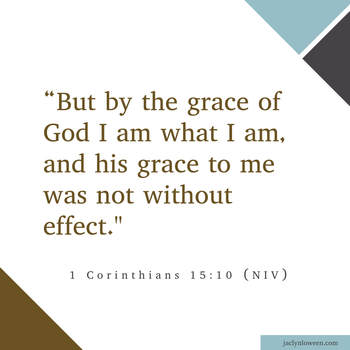 Let’s look at a couple more passages that demonstrate God’s purpose being written into your story before it was even revealed to you or comprehensible to your soul. In 1 Corinthians 15:9-10 (Go and read it and come right back.), Paul again shows us, He did not call himself. In addition he states, “by the grace of God I am what I am.” In other words, my past and my present are not outside God’s hand of grace and calling. So also for you! The scars or mishaps of your past don’t cast you outside the calling and purpose to “preach” the Gospel to the people God places in your life. All who claim the name of Jesus as Lord and savior have a divine appointing and anointing because Christ’s death on the cross made each of us members in the royal priesthood and the Holy Spirit’s ascension gives us the power to do all things. Let that sink in for a little bit. You are called. Your life has a divine and holy purpose. Because it was written on your heart and soul before the beginning of time. Now is the time to go and see how to use your gifts, time, talents and experiences to live it out for such a time as this. But why is that so hard to do? Because we live in a fallen world and we have an enemy who likes to entangle us in snares, knock us of course, and steal the gifts we have been given to bring Jesus’ name and saving grace to the lonely and hurting. In my life, and possibly in yours too, this wrestling match starts in my mind so it is hard to detect the attack. Secondly, “I am a human, raised by human” (the movie, Elf). In this human condition I am prone to faults, failures, and sins that cloud my vision, inhibit my motives and have the potential to derail me from the path marked out for me. The human condition has it's hold on all of us while we walk on this broken planet. As a result, we have to work at pursuing and maintaining a clear-conscience: persisting in not allowing faults, failures and sin to inhibit us from faithfully, joyfully and powerfully living a life that utilizes all the God-given gifts provided to us as a means for reaching the world around us for the glory of God and the love of all he has created.  In the book of 2 Timothy (Go read the whole book. It will take you approximately 11 minutes. I timed it for you.) you will see that Paul teaches us that serving with a clear-conscience comes from not taking credit for our accomplishments or our failings. In addition, that a clear-conscience is formed out of believing we have a divine calling and being equally convinced we did nothing to earn it. Consequently, we are neither powerful enough to ruin God’s plans. Admitting that even in what seems to be our time of greatest failure, He can make all things work for the good of those who love him and are called according to His purpose” (Romans 8:28) requires faith, humility and trust. Getting to this place in our believing is to land in our sweet spot. Operating out of this sweet spot is our flourishing. We will never fully arrive at this place this side of heaven, but in Christ and through the Holy Spirit, we will experience it on the days we need it and God stoops down and offers grace to us. And on the days when we fight for it with all the armor of God provided to us to do battle. Fighting for a clear-conscience is doable and necessary for us to run with assurance and confidence the races marked out for us. Therefore, taking the time sit with and reflect upon the past and present choices, actions and thoughts of your life and mind is a needed step in this process of going and seeing how your God-given gifts were intended for such a time as this. To further explain and clarify, let’s take a look at a passage in Hebrews 10:19-24. In this passage we see both how our conscience is set to cleanliness and the result of letting the Holy Spirit come in an clean house. "Therefore, brothers [and sisters], since we have confidence to enter the Most Holy Place by the blood of Jesus, by the new and living way opened for us through the curtain, that is, his [Jesus’] body, and since we have a great high priest over the house of God, let us draw near to God with a sincere heart in full assurance of faith, having our hearts sprinkled [by the blood shed at the cross] to cleanse us from a guilty conscience and having our bodies washed with pure water. Let us hold unswervingly to the hope [of our purpose and calling] we profess, for he who promised is faithful. And let us consider how we may spur one another on toward love and good deeds" (NIV). These verses make it clear that we are already cleaned and given a clear-conscience because of the atoning work of Jesus as the sacrificial lamb for all mankind. So, it isn’t that we have to work to gain a clear-conscience by doing this or that. It is that we have to work at remembering, seeing and admitting the ways we have fallen short, made choices out of fear or envy, participated in actions that harmed ourselves or others, or perhaps let doubt win over belief. It is taking the time and space to let our hearts break for what breaks the heart of God and admit maybe what breaks his heart hasn’t been our priority. It takes sitting in that grief long enough to feel the weight of the consequences of our sin. Not so that we feel shame or condemnation, but that we are able to feel, know and understand what we have been saved from. True humility, the kind that brings our soul and heart to understanding deeply a right posture toward God, is found in going and seeing some of those dark places of our hearts and minds, admitting that we see them and THEN letting the light of Truth, the power of the Spirit, and the cleansing power of Christ wash it all clean. Sit with that image for a minute or two: your heart, your mind, your soul, your ambitions [strength] gently and lovingly having the purest of waters being dumped over them to wash them clean. Tool 3: Stone Washing Activity Tool Defined: Washing Your “Stones” (tactile learning): Research shows that we learn best when we experience the intended lesson with our five senses: touch, smell, taste, hearing, sight. This activity is designed to allow you to engage in as many of those as you can, so that your brain can hold onto the memory and your heart can sense God’s touch. In addition, our ability to recall is increased when touch, smell, taste, hearing or site are associated with a memory. In particularly difficult memories, these senses can trigger negative emotions. But God is the great healer, and he wants to come into those broken and hard places of your heart's memory, and establish clean memories and replace sensory triggers. But it may require some effort on our parts to invite the Holy Spirit into those places and give our brain some new wiring systems to work with. As you work through the steps of this activity, imagine that it is God’s hands washing over the words on your stones. Imagine that he is taking rocky parts of your heart and turning those stones to flesh (Ezekiel 36:26). Get to a quiet place and let him wash over your heart as you wash these memories. Ask God to heal the negative sensory details with the ones that are in front of you: warm water, fragrant soap, clean hands, erased words. Let His grace come in and reveal what needs revealing to provide a clear conscience with which to run forward in your purpose and calling. Instructions
Closing Exposing what isn’t hidden anyway still has a way of summoning up fear and trepidation. The author of Hebrews clearly understood this because he opens this passage with assuring us that we can draw near with the assurance provided to us through our faith, believing that laying before him all that has been trapping us in guilt, has been overcome and cleansed. We need only to draw near, admit those things that are chaining us to guilt, and then believe the cleansing is in His hands, literally. The nails in his hands took that guilt for us so that we could hold unswervingly to the hope we profess, and the one who is faithful. You and I, we have access to a “true heart” fully assured and confident because of our faith. Yet, the daily toiling of life in this world can sometimes hold us back or trip us up. This is not new (Consider some of the “heroes” of the Bible the actions they took: Jacob, Noah, and David to name a few. ). Nor it is surprising to God. Yet, if we don’t let God come in and deal with the guilty conscience that has resulted from our failures or unbelief, we’ll lack assurance, hemorrhage faith, and default to condemnation that could cripple our walk with Christ. Our hearts are already “sprinkled” and our bodies “washed” by the atoning power of Christ, but we need to make sure we take the time to recognize exactly what poor choices he has redeemed, what broken relationships he has restored and what condemning self-talk and lies he has set us free from. The chains have been broken, but if we only see them locking up invisible, unnamed things, we will not fully realize all that he has done for us, and our conscience will not fully understand the clean-state in which we live.
This is part 2 of the series, Go and See. These posts are designed to give you tools to "go and see" the ways God has designed you for impact right where you are, right now. Head back to part 1, Stones of Remembrance, for the purpose and context of the series, along with the steps for creating a timeline to be use here in part 2. Recap from Part 1: Stones of Remembrance Timeline First, if you are coming here today having completed a big long timeline of your life, one that has set on a paper "stone of remembrance" of people, places and experiences that have shaped your life, I want to say, "kudos!" That likely took a lot of prayer, emotion, and perseverance of mind. I imagine it took just as much effort as was required of the 12 men in Joshua 4 who were commanded to "take up each of you a stone upon his shoulder." These large stones would then be set in place as a memorial of remembrance. So that, when future generations asked, ‘What do these stones mean?’ they would be reminded, "The Lord your God dried up the waters of the Jordan for you until you passed over, as the Lord your God did to the Red Sea, which he dried up for us until we passed over, so that all the peoples of the earth may know that the hand of the Lord is mighty, that you may fear the Lord your God forever" (Joshua 4:21-24, ESV). Reflection & Application Have you ever considered that by taking the time to remember and record the people, places and experiences of your life it would be possible to see how your life is made up of stories that testify to God’s presence and work on this Earth? Do you believe that just as the stones set up in Joshua 4 were meant to show all the peoples of the earth the hand of the Lord is mighty to save, your "stones" too can be set up to do the same? What if your "stones" (stacked one on top of the other) are meant to display God's sovereignty, grace and relentless love? Digging Deeper I believe they are. I believe they will. I believe that you just might need some tools to help you get those stones set up and put in place in such a way that others can see [read] them. In not too long, upon seeing [reading about] them, your children or others will soon be asking, "What do those stones mean?" And you'll be able to answer them, with a testimony that says, "The hand of God is mighty to save. The love of God is sovereign. The life of being a chosen one is full of hosanna ("Help! Save me now!") moments, and a God who restores, redeems every one of them for His good purposes. Yet, setting up those "stones" and sharing what they mean in light of heaven can be very, very hard. Why? 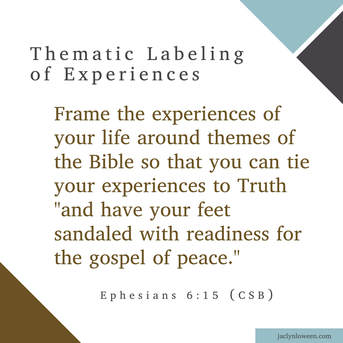 There are a myriad of reasons but I think these are the top three:
This session's tool is designed to help you jump over all of the above hangups you might face in taking the "stones of remembrance" of your life and setting them up as a memorial for you and "your people" to be reminded of God's deliverance, faithfulness and presence in your journey from here to heaven. Tool 2: Thematic Labeling of “Stones” Thematic Labeling of “Stones” (organizational structure): The Bible sets up for us a storyline pattern that is used in in nearly every book or movie that leaves the reader or viewer feeling satisfied at the end. (Do you find this a coincidence? I don’t!). All good stories have these components:
It can be helpful to categorize your experiences and memories into these themes for a few reasons. First, it begins to help you frame your story in light of the Gospel. Second, it allows you to go into the Bible and find passages that relate to the theme of your story and it’s correspondence to Truths from God’s word. Third, it can help you shape what you are called to share with others in a way that is engaging and satisfying to the hearer. Forth, when we view our story in this way, we can more easily see that there is a divine and Holy author writing a beautiful story out of our lives. Instructions After you have exhausted yourself with remembering, then go back and add themes (creation, fall, redemption, restoration) to the “stones” you have placed on your timeline. Try to categorize all “stones” with at least one of the themes, but each experience you recall doesn’t need to have all four components. Creation: Times when something new was birthed, reborn or made new: education, marriages, jobs, children, dreams, visions… → Highlight these events/memories in yellow. Fall: Times when something was broken, torn away, damaged, or lost. This could be physically, emotionally or spiritually. Desert times. Hardships caused by choices you made or circumstances around you. → Highlight these events/memories in green. Redemption: Memories of times when you witnessed God bringing you (or someone else) to turning point: Turning from something that was distracting you from him and going back to him. → Highlight these in blue. Restoration: Memories of something in you or around you being made new, healed restored, or cleaned up. → Highlight these events/memories in pink. Tips to help with getting your ideas out of your head and onto paper:
The Next Step Connecting the people, places and experiences of your life to Truths and specific Bible verses can help deepen the experience of remembering and labeling the "stones" of your timeline. The retelling of our experiences and reflections of what we have learned from them are powerful and valuable. Yet, when we can also weave the words of Scripture in to support the themes or lessons we have learned, there is a "breath of life" that is added, increasing the power and impact because we are allowing God's words to be present in our remembering, writing, and speaking.  So, the next step to take after labeling all your stones into a category is to find Bible passages that support the theme or what you learned from the experience. You can use your knowledge of the Bible (verses you have memorized), your Bible's Topical Concordance (if it has one) or an online Topic Bible (for example, Biblegateway.com or Biblehub.com) to find Scripture or biblical truths that could be used when it comes time to write about or share your "stones" with others. Then, either on a separate sheet of paper or next to each "stone" on your timeline, record the Bible verses you find that could be worked into the telling of your story. Later, this will help you to convey your intended message to your reader or listener. Closing 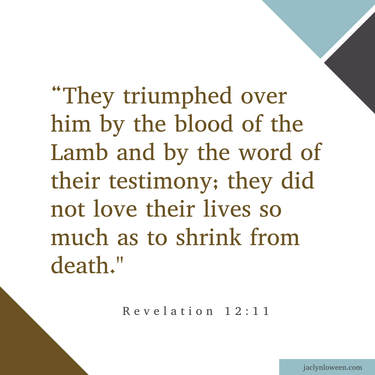 I would like to close this post with a testimony to how this tool, along with the power of the Holy Spirit, set one woman free and empowered her to claim a promise from the Bible over her future. A few weeks after teaching this series as a class to a small group of women, I received a note from an attendee. In it was written, "I did my timeline on a literal line from birth --> our class. When I finished my line, the Spirit prompted me to subtract the years depression started (month and year) until class. It was exactly 40 years! Then the Spirit said, 'You were in the desert 40 years and now you're out!' Believe me, I am claiming that promise!" I close with this for two reasons:
I have spent a lot of months debating what to do with this Go and See series that in a lot of ways seems half-finished. I debated ever teaching it again. But when I look back at this note, I am reminded that I am to persevere in helping others uncover their God-given gifts so that we can all keep building one another up, cheering one another one, and ushering in the Kingdom of Heaven through the body of Christ. Lifting stones is hard work. Investing our talents is sometimes exhausting. But the rewards coming at the end of the race will be worth it. Nevertheless, to run the race marked out for you, you may first need to step into discovering how your life's story is revealing who you are, who you are called to minister to and how you are designed to do so with joy, passion and love. Remember to invite the Holy Spirit in to each step of this process as a guide who holds the light that is the lamp leading you to understanding. Let your mind and soul trust that your work is not in vain and that your Heavenly Father delights in watching you open the gifts he has given you for such a time as this.
This is part 1 of the series, Go and See. These posts are designed to give you tools to "go and see" the ways God has designed you for impact right where you are, right now.
Introduction
Context and purpose of the Go and See series:
Digging Deeper
Take a few minutes and go & read, Mark 6:30-44.
Note the following:
Take a few minutes to go & read, Matthew 25:14-30.
Note the following:
Reflection & Application
God has talents for each of us, and we are commanded to multiply them until his return.
Tool 1: Stones of Remembrance Timeline
Scriptural Rooting for Tool 1: Go read Joshua 4 . Pay close attention to the purpose and meaning of the “stones of remembrance” the men are commanded to set-up.
Note the following:
Setting Up Your Stones
Stones of Remembrance Timeline: The aim of this activity is for you to place on a timeline the “stones of remembrance” that testify to God’s presence and work in your life. Imagine that each dot is a stone lifted up from a river and carried across to be set in place as a memorial, “so that all the peoples of the earth may know that the hand of the Lord is mighty, that you may fear the Lord your God forever” (Joshua 4:24).
As we have noticed inJoshua 4, God was present and evident in their time of need, despair, and doubt. So, don’t forget to place on your timeline those experiences of your life that aren’t all that pretty, but are a testament of hope, grace, truth and deliverance. In contrast, there are moments in our life of pure joy, excitement and accomplishment that also yell loudly of the Lord’s presence and persistence in our life. So, include those too. In addition, our experiences are not the only way our testimony of God’s involvement in our lives. People and places can mold our hearts and souls. Including significant people and places on your timeline will also help to trigger your memory of God’s providence and provision.
Instructions
The Next Step
Each day, for one week, write about the details of one of the “stones” on your timeline as if you were sharing this with a friend in order to help them see God’s hand in Your story. Try to stick to the event as much as possible, without getting to wrapped up in the history of all that came before it. (But don’t feel constrained, this is just a suggestion.)
As you are writing, keep in mind what category the experience you are focussing on is settled under. Let this help you find scripture and Biblical truths to add into the message you are trying to convey to your listening. Record the Bible verses you find that could be worked into the telling of your story. Don’t worry about grammar, spelling, punctuation...none of that! Just worry about getting your ideas down in a somewhat organized manner that communicates how this part of your story reveals God’s story (either in your life or in the world). Remember, you best communicate your faith by showing His[God’s] Story, plus Your Story, and how it equals Our [Your’s & God’s together] Story.
Just the other day a friend and I were discussing our children’s education and mused about how different things seem from when we were kids. Especially in the area of the valuing homework and children (and their parents) being expected to learn independent of a classroom. It seems that extra-curricular activities trump academics even in elementary and that both educators and parents are dismissing homework as a nuisance and unnecessary. Neither of us are excited about this push away from homework because even though we are not researchers, we are parents who are educated, confident and successful individuals, who believe the practice of leaving homework behind is going to negatively impact our children’s ability to learn life lessons like responsibility, commitment and intrinsic motivation. The things we learned from our many years of elementary, secondary and post-secondary education. A couple years ago I did some research on this topic, the significance of homework; Research that is not shaping school district and classroom policies and norms around the country. So, I wanted repost this to present an alternate point of view in case there are other parents or educators out there who need to know they aren’t the only ones who thinks homework is one thing we shouldn’t be leaving behind. After perusing these articles and radio broadcast (The Trouble with Homework, Rethinking Homework, Homework: An Unnecessary Evil?), it seems safe to say homework is under attack. If you ask me, it is because the systems and critiques of education have yet to figure out how to measure the value of an education. Because again and again the measures by which the successes of students, districts, states, and a nation are tainted by the belief that we can really know what is going on in a school based on standardized test and inherently faulty grading systems that simply represent a number, not a learner.  In the search for a way to put a value on a student’s or a school’s achievements, we have lost sight of what is significant—lives, brains, beating hearts, moldable spirits, OUR country’s FUTURE agents of change. In our classrooms sit our teachers, our doctors, our lawyers, our politicians, our workforce. Those we are molding will be molding our country in the all too near future. How do we want them to approach each day of their future? This is a future in which we will live, but in which they will be the major decision-makers and creators. We will pass off the baton sooner than we realize, and we will have expectations on how that baton should be carried. Are we setting our future lawmakers, teachers, and coaches up for success in meeting these expectations? When one approaches the homework debate he or she must not forget to consider the humans behind the numbers and take into account that the qualities we all look for in humans are rarely measurable. A good list of these qualities can be found on Brianna Wiest’s blog: “17 of the Most Universally Admirable Qualities People Can Have” (Go read it because I am going to give a list, but her descriptions are so much richer than the snippet that I am sharing.) Want to see the hallmarks of a good school, a good teacher, a good student? Then look for the above 17 qualities. Sadly, in the midst of searching for a significant purpose for homework, the connection to number driven data has led to a number of articles and opinions against homework. Moreover, looking to generalized test score outcomes as a base for determining effectiveness of homework is not a reasonable place to go looking. Yet, that is the sum of most of the research out there on homework. In the numbers generated by standardized tests or final grades it is impossible to determine if through the process of practicing independent learning positive personal qualities are being enhanced. Certainly, the measuring of “enhanced personal qualities” would be challenging, and likely the reason such a study has never been completed. But still worth consideration. Where would one start? It would require hours upon hours of examining students’ growth in character over time, the study of the various ways teachers use homework, and an in-depth analysis of schools’ commitments to ongoing, outside of the classroom learning initiatives. It would require more than handing out paper and pencils and having students write what they know on that day at that moment (with no consideration of what variables could have blocked understanding during the hours, days, or weeks leading up to the test). A true “test” of the significance of homework would have to take into consideration the various backgrounds of students and measure growth of character qualities over time. A challenging study to set up but I am certain the results would be worth the knowledge gained. When I assign homework, I take into consideration the busy lives that my students lead. I take into consideration that approaching new material can be challenging when done alone. I take into consideration that mom and dad may not be around to help. But I also take into consideration that THOSE CIRCUMSTANCES MAY NEVER CHANGE—that each of these students will face challenges in fulfilling tasks, expectations, and obligations all of their lives. 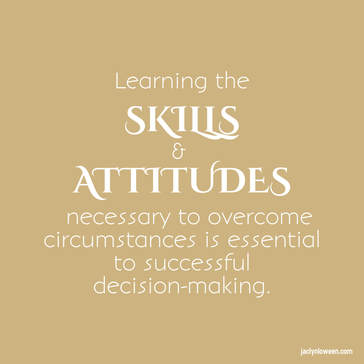 Learning the skills and attitudes necessary to overcome circumstances is essential to successful decision-making. And in the future (when they are the adults) they will actually be on their own to figure that out. For now, they have me and other teachers and adults to coach them through, to help them learn how to face apathy, fear, and frustration with a spirit of courage and determination. I can be there to help them try again when they fail. To let them know that failure isn’t a place to stay, but a place to work up from. When I assign homework I don’t look for a perfect paper in return, I look for whether a student tries or not. I look for whether they put in time and faced the fear of looking at a blank page and took the courage to start. Then I coach from there. Do I sometimes get nothing in return? Yes, but that is also a starting place for coaching. Should I stop assigning homework because some of my students consistently decide not to do it? No, because then I miss a moment to pull those students aside and coach them toward caring about expectations and obligations, about working toward goals. If I never assigned independent work I would never have these important conversations with students who need to be trained in how to follow through with tasks. Because, you see, as Mr. C. Mielke writes in his blog post, “What Students Really Need to Hear” the “main event” of school is the learning of how to face challenges, academic and otherwise. The practice of homework is just that, a necessary practice in honesty, selflessness, self-awareness, showing a willingness to learn, building confidence, creating personal style, respecting that which may not be understood clearly, active responsibility, and independent learning. Show me a study that measures the correlation between these universally admired qualities and the amount of homework assigned and I am willing to bet the search for the significance of homework just might turn up some positive results. But here is the rub: are we taking the time to use homework as a means to teach character qualities? Do we stop and take the time to do mini-lessons on the prospect completing homework has for building character qualities that lead to successful living? If we don’t, and we let it be another item on the checklist of class duties, we will cheat OUR FUTURE leaders out of the opportunity to grow in character through the practice of homework. I want to leave our country's future in good hands, hands that know how to work, love, serve, respect, and learn--not hands that simply know how to put pen to paper or people who determine the worth of something based on numbers on a page. I want to create learners who pursue learning even when no one is looking, and when there is no other reward than that which is found in the experience of exploring, gaining knowledge and creating--in the classroom and at home. What are your thoughts on homework and the significance it has in building in to our students qualities necessary for successful living? Feel free to start a conversation in the comments below. Seeing a journey come to a close can be full of joy, relief, excitement and wonder. Some journey's ends are filled with sadness. Yet in all journeys there are lessons because to walk a journey is to move through a particular experience with a particular group of people, for a particular purpose. From each of these faucets of a journey come moments of challenge, clarity, and change. To walk a journey takes stamina, perseverance and a guiding force.
In my life I have walked many journeys, some long and requiring more faith, patience and endurance that I would prefer. Others more simple. The ebb and flow of life's journeys keep me moving along toward an understanding that journeys are very rarely meant to be traveled alone. As I wrap up the final week of my SMU M. Ed. I find myself inspired by the many teachers who have in some way or another joined me on this journey toward the goal of obtaining more knowledge on teaching and learning. Last Sunday I sat and listened as normal, every-day-teachers shared in inspirational discussions on the teaching and learning happening within their classrooms. I got to see the behind the scenes of many teacher's planning and execution of great instructional practices. And it wasn't the strategies that were the most inspiring (though they were helpful and I plan to use them), what was most inspiring was to see how deeply so many teachers care about the students in their classrooms. And not just the students they teach, but also the families from which each student comes. In the American culture (unlike most other cultures in the world) there is an overcast of negative media on the educational system. One would be hard-pressed to put forth an argument that American's value education based on the dominate negative voices of the media, the constant focus on and criticism of student standardized test results, and the lack of funding provided to allow for smaller classes sizes and smaller student to teacher ratios. Sadly, the shadows these cast on the culture's perspective of education often prevent the stories of how teachers passionately devote their lives, day-after-day, to being in students' lives. Lost in the negative voices is the reality that there are thousands of teachers each your pouring themselves out to help students access doors of opportunity--both in public and private schools. But those of us on the inside know...we know that teaching and learning are not able to be measured by a test, nor should teacher's and school's reputations be built on a number posted in the paper. We are not driven by these cultural measures. We know that teachers shape and mold the way children and teens see themselves and the world. Teachers are guides on the journey children take from childhood to adolescence and from adolescence to adulthood. We recognize just how precious those hours we have with our students are and we desire deeply to make those hours matter. And that is why we gather to discuss best teaching practices, best assessment options, and best practices in creating community in our classrooms. We know that content will only get our students so far, and that the rest of life's lesson are just as important. So we strive to foster places of safety, places of equality, places of encouragement, places of celebration, places of positively because in those places students are most capable of learning. And we know that creating such places doesn't just happen because a teacher and students show up in classroom. The creating of such places requires time, patience, intentionally, intuition, reflection, and persistence. None of these things can be measured on a standardized test or even observed in a one-time visit to a classroom. Instead, the journey toward a healthy learning environment is created and experienced by those who walk into the classroom daily. Yet, the impact of such a place spreads beyond the boarders of the classroom as students bring what they have learned and felt out into the other parts of the world they encounter. As teachers we so desperately want our culture to get us. We so desperately want our education systems to understand the whole student and the whole teacher. And sometimes it is hard to see that anyone gets us. But as I sat and listened to teacher discussions from 8am-4pm last Sunday, I knew I was on the inside. And I knew I was among friends. And I was reminded why I was a teacher...because to be a teacher is to be called on a journey--not a solitary one, but one in which one travels among the dreams of children and the aspirations of young adults, and fellow dream-catchers. Yes, I think teachers are dream-catchers. We get to watch as dreams develop in our students and help them reach to catch them. And we sometimes catch onto to their dreams and ride a little while with them. And we catch onto the dreams of other teachers: dreams of a better way of teaching, a better way of meeting student needs, and we journey on in an effort to create places for new dreams to be born. So as I walk the last steps of this journey I am most thankful for the inspiration I have been given from being able to be on the inside of so many teachers' journeys. And though it will be a little bit sad to say good bye to this journey, I believe the excitement of completion will override any negative emotions. I do not consider it by chance that I was able to walk this journey. I choose to believe that I was given the gift of this journey and that because of this journey I will be allowed to access new and exciting journeys with a unique and sincerely grateful perspective for the gift of journeys and the gift of places and the gift of experiencing both with people. |
Jaclyn LoweenEDUCATION Links to all the, Go and See Study, sessions.
Archives
June 2018
|
||||||||||||||||||||||||||||||||||||||||||||||||||||||||||||||||||||||||||||||||||||||||
Proudly powered by Weebly


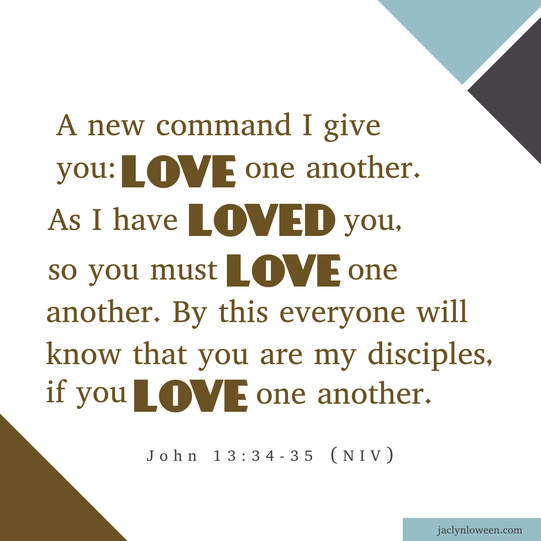
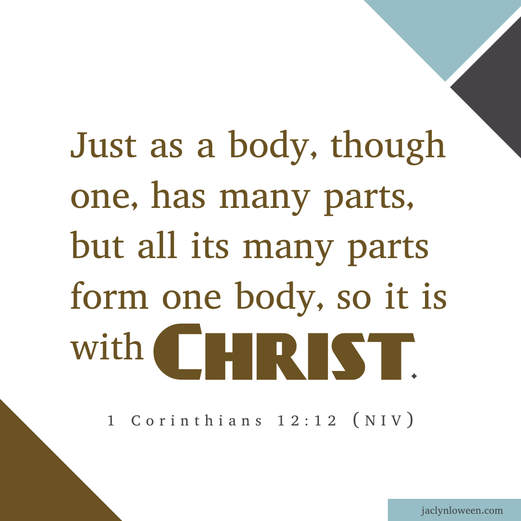
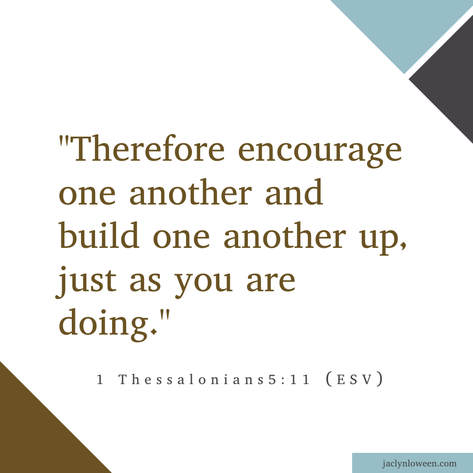
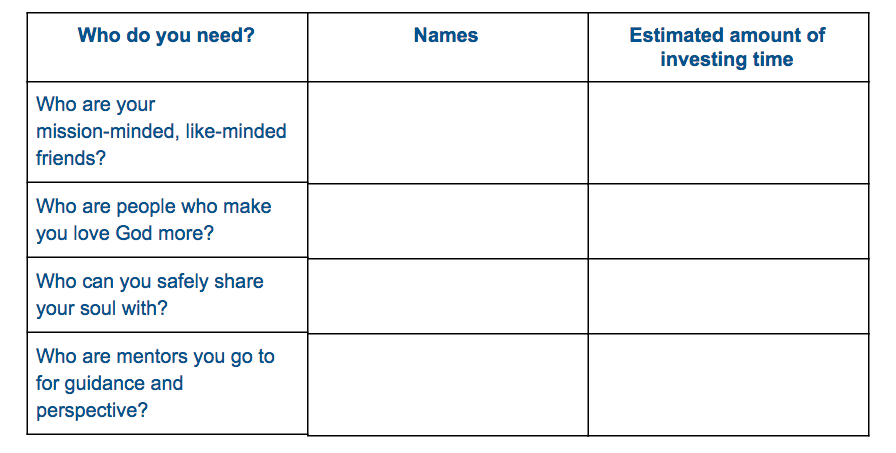

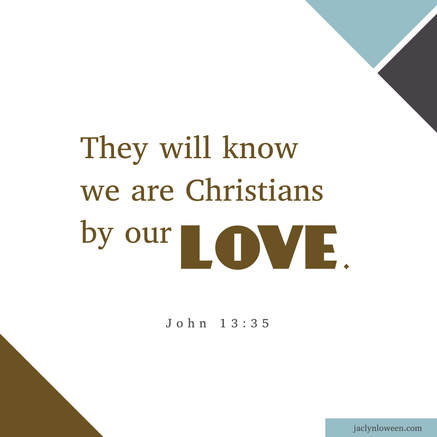



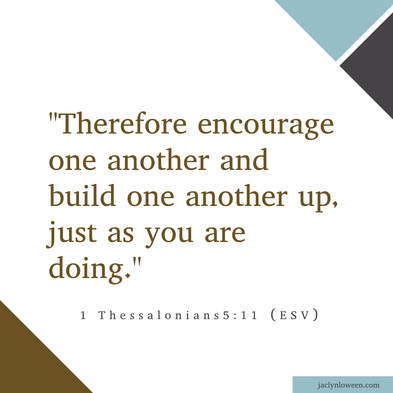


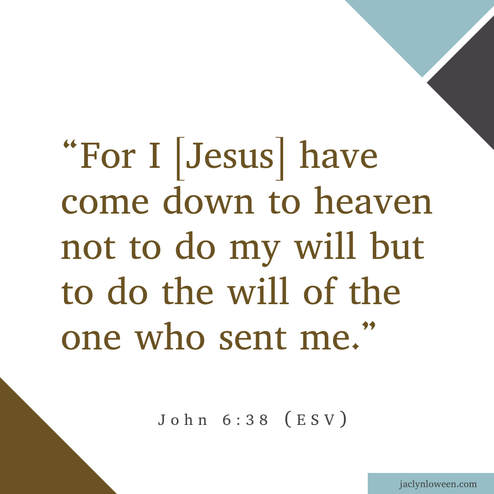
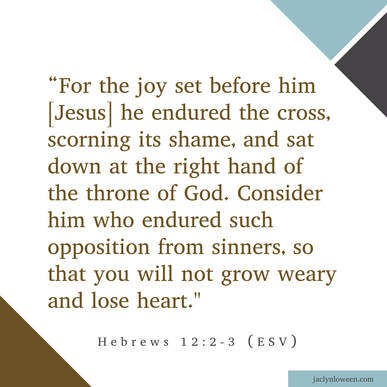
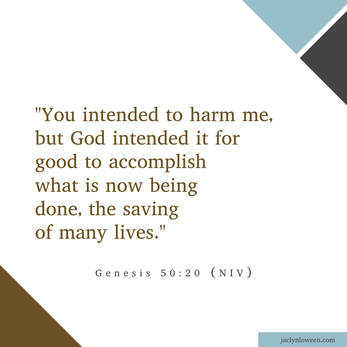
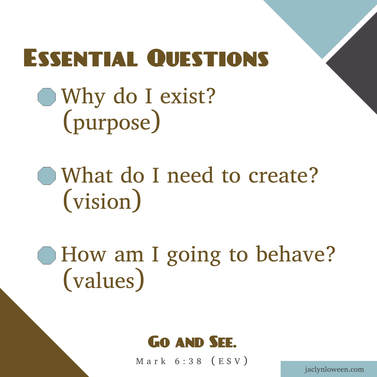
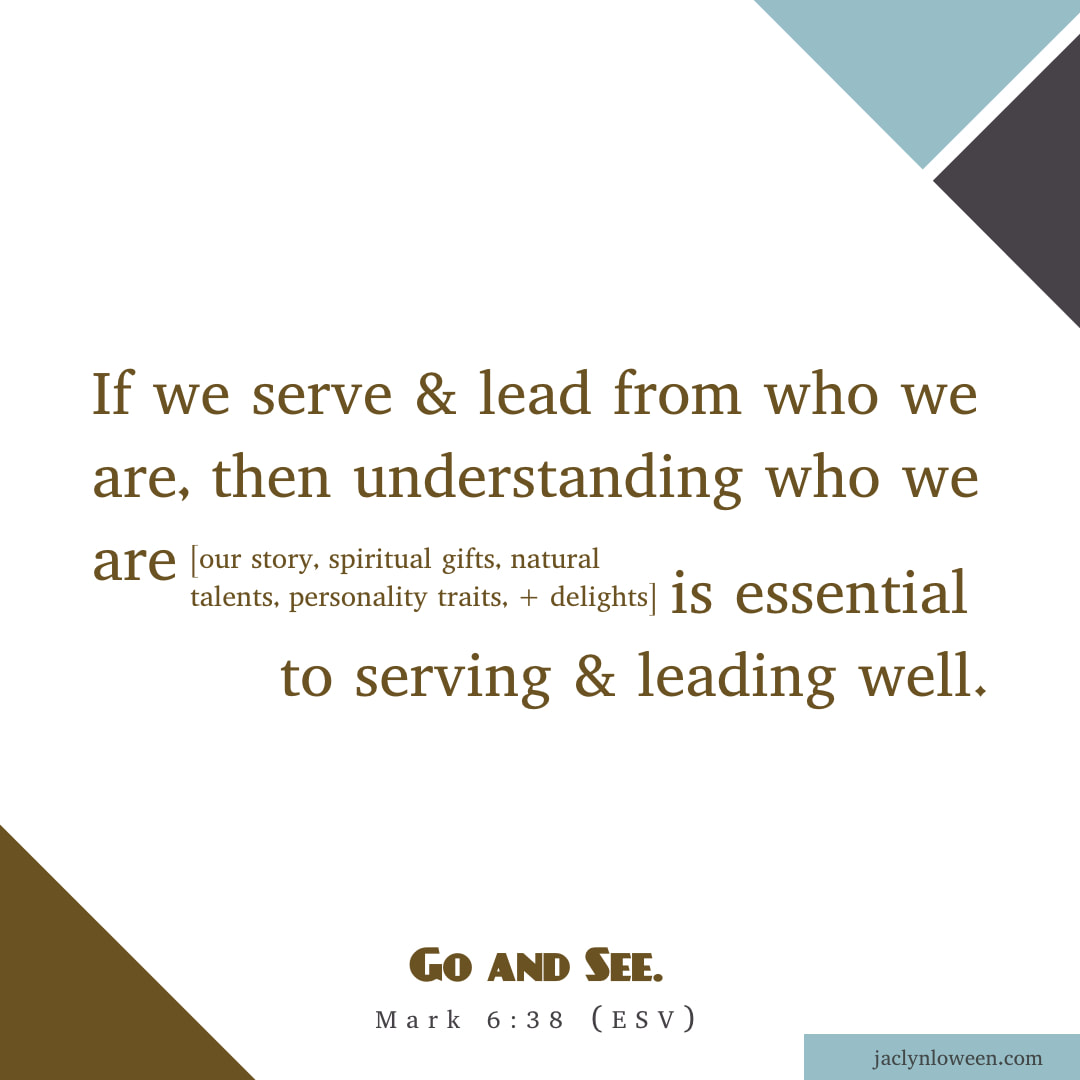



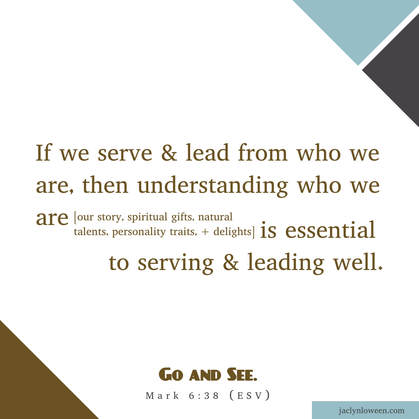


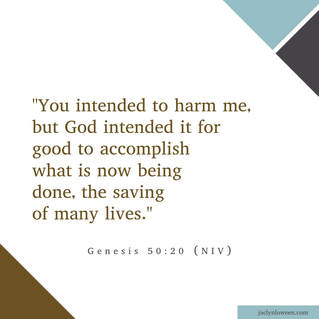
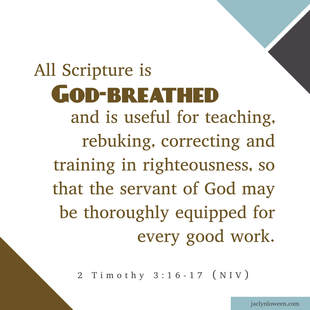
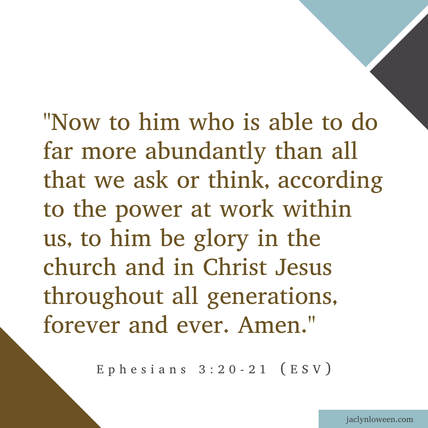


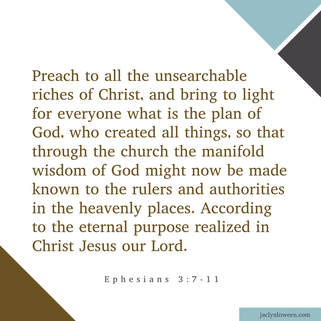

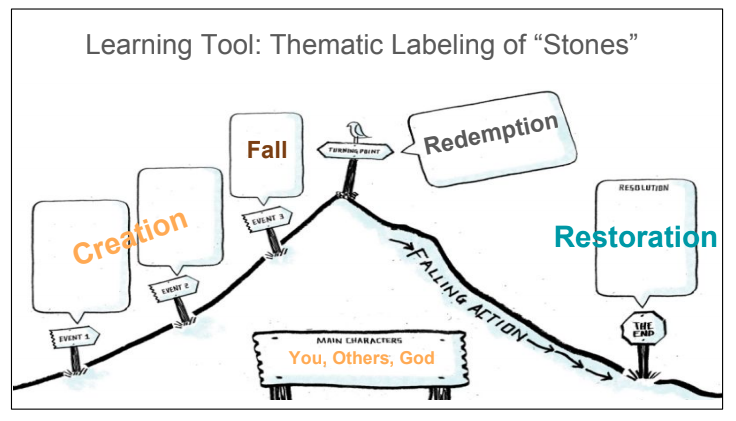

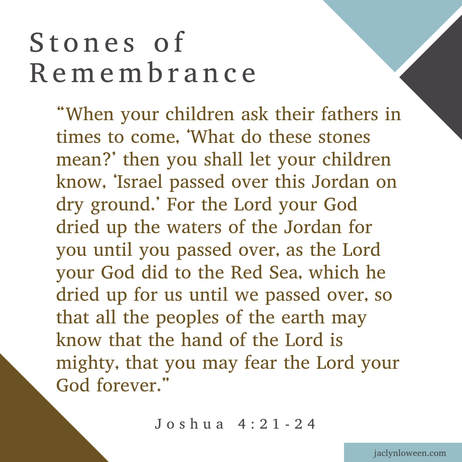

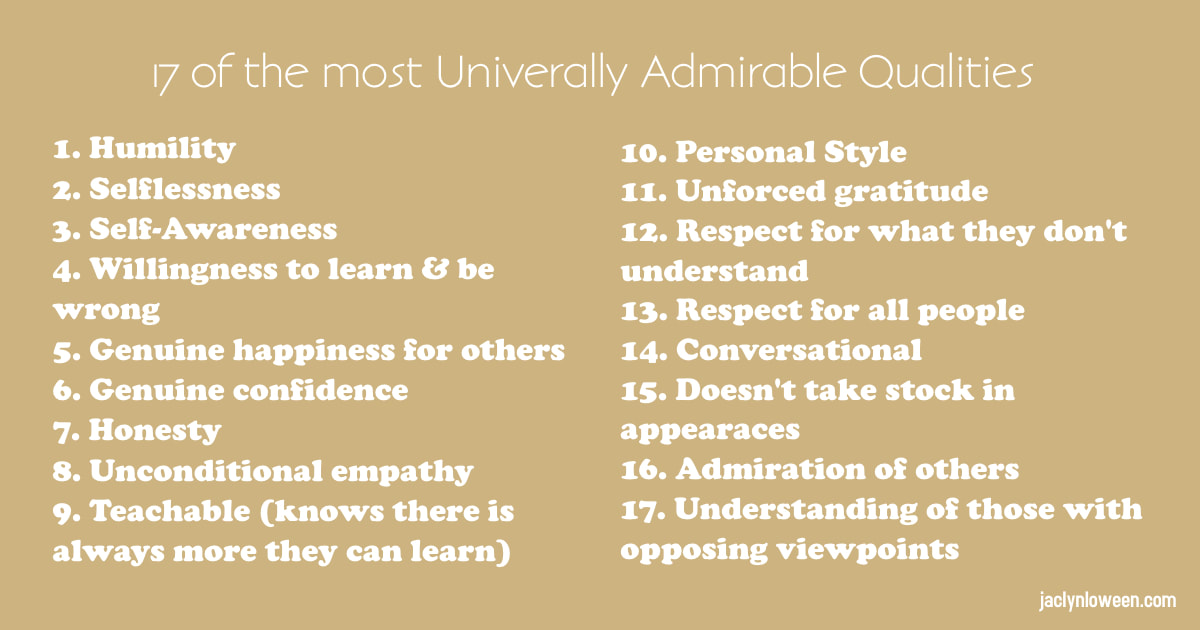

 RSS Feed
RSS Feed